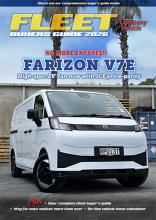Williams Advanced Engineering, the division of Williams that commercialises Formula One derived technologies, is embarking on a project to install flywheel energy storage technology in two remote Scottish island communities to help stabilise their power grids, improve energy efficiency and reduce emissions from non-renewable power sources.
The Isle of Eigg and Fair Isle will be the first sites in Europe to install Formula One developed composite flywheel energy storage technology into their power networks.
Originally pioneered by Williams for Grand Prix racing following the introduction of Kinetic Energy Recovery Systems (KERS) into the sport in 2009, the technology has since been introduced by Williams into a range of applications outside of Formula One such as hybrid buses and Le Mans winning racing cars.
The project is being partially funded by an extended grant from the UK's Department of Energy and Climate Change’s (DECC) Energy Entrepreneurs Fund which aims to encourage innovation in the low carbon sector.
Williams Advanced Engineering has joined forces with the Fair Isle Electricity Company and Eigg Electric to identify possible operational improvements, energy saving and environmental benefits from installing the technology on each island.
The Fair Isle power network relies heavily on wind turbines and diesel generators to supplement the power system and can only guarantee power during the day.
Williams Advanced Engineering’s flywheel technology will smooth the power flowing from the wind turbines and inject stored energy when needed. This will improve the quality of power received by residents and reduce the reliance on costly diesel generators that produce high CO2 emissions.
Said Paul Newsome, chief technical officer of Williams Advanced Engineering: “Energy efficient technologies are at the heart of Williams’ diversification strategy and this project is a very tangible example of how technology originally developed for Formula One racing can have a direct relevance to people’s lives.
“Finding ways to make renewable energy more efficient and reliable is increasingly important, particularly in remote locations that rely on this form of power, and this ground breaking partnership will help demonstrate the strong potential of Williams Advanced Engineering’s solution.”



